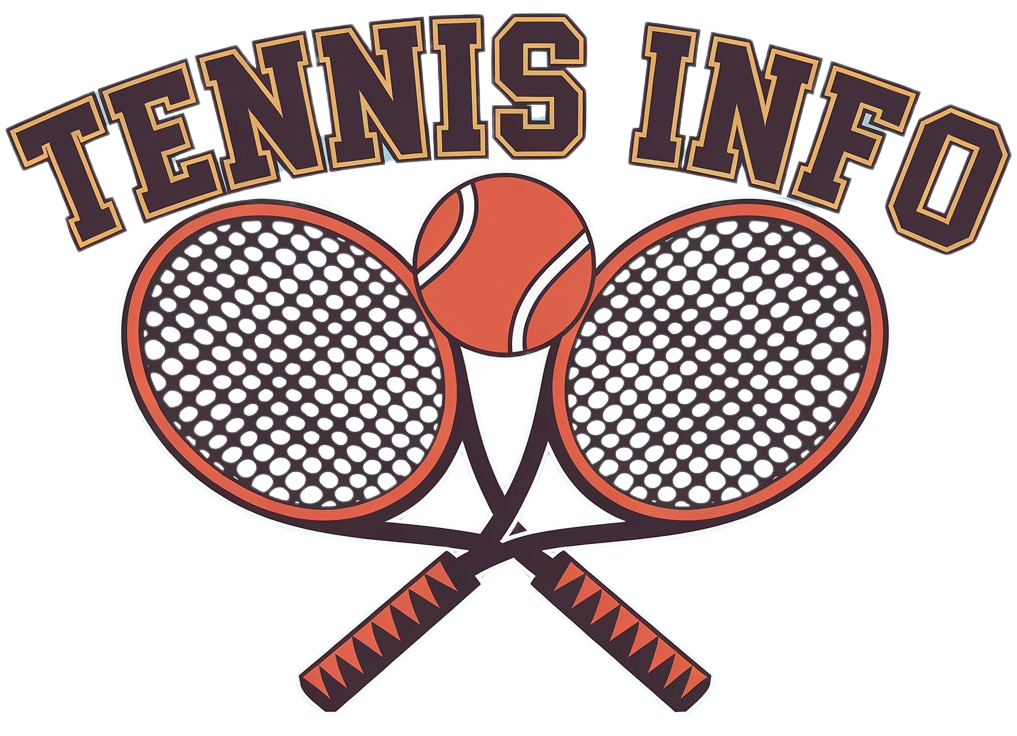Naomi Osaka Responds to Backlash Over On-Court Gesture with Lamine Mboko
in a momentŌüŻ that has captured the attention of tennis Ōüóenthusiasts ŌüŻand analysts, Naomi Osaka is confronting the criticism she faced after not congratulating fellow player Lamine Mboko on the court following their recent match. This incident occurred during a fiercely ŌĆŹcontested tournament and has sparked significant dialogŌĆŹ regarding sportsmanship, athlete conduct, and the immenseŌĆŗ pressures professional players endure. As a four-time Grand SlamŌüŻ champion, Osaka remarked on her oversight by stating,ŌüŻ ŌĆ£I completely forgot,ŌĆØ providing insight Ōüżinto her mentalŌĆī state amidst ŌĆīthe high-pressure environment of competitive tennis. the reactions from fans and commentators underscoreŌüż theŌĆŗ intricate dynamicsŌüŻ of athlete interactions Ōüżand societal expectations in sports.
Osaka responds to criticism forŌüż Skipping congratulatory Gesture
The ŌĆŹtennis community was abuzz after Naomi Osaka’s match against rising star Kelsey Mboko when she chose not to partake in the traditional post-match congratulations. Many fans and critics Ōüżexpressed disappointment atŌüó what they ŌĆŗperceived as a slight towards her Ōüżopponent. In defense of ŌĆŹher actions, Osaka stated, ŌĆ£I completely forgot to congratulate Kelsey on-court after our match; it wasnŌĆÖt my intention to overlook such an critically important moment.ŌĆØ This acknowledgment led to mixed reactionsŌĆöwhile some supporters rallied behind her clarification, others questioned whether it was appropriate for an established player like herself during such a pivotal event.
To clarify her stance further, Osaka took to social media platforms where she emphasized the significanceŌüó of sportsmanship and mutual respect ŌĆīwithinŌüŻ tennis. She pointed out that athletes often face overwhelming ŌĆŗpressure which can lead them Ōüóto miss spontaneous moments like these. ŌüóReflecting on this incident allowed ŌüŻOsaka to share several key points about her relationshipsŌĆŹ with fellow competitors:
- Support ŌĆŗfor Fellow Athletes: ThroughoutŌĆī her career, Osaka has ŌĆŗadvocated for unityŌĆŗ among players asŌĆŹ new talents emerge in the sport.
- A Learning ŌüóExperience: She ŌĆŗacknowledged that every match serves as an opportunity for growthŌĆöincluding navigating post-match protocols.
- A Commitment Moving Forward: Osaka reiterated her dedication toŌĆŗ recognizing all players’ achievements within professional circuits.
Understanding Sportsmanship expectations in High-Stakes Matches
The recent situation involving Naomi OsakaŌĆÖs decision not to extend customary congratulations toward Mboko has ignited fervent discussions about what constitutes proper sportsmanship under pressure-filled circumstances. Even ŌüŻthough she later expressed regret by saying she “completely forgot,” this incident highlights frequently enough-overlooked aspects of athlete behaviour ŌĆŗwhen faced with intense competition. During ŌĆŹhigh-stakes matches where emotions run high andŌüŻ adrenalineŌüż surgesŌĆŗ through their veins,athletes may become so engrossed in their performance that they inadvertently neglectŌüŻ traditional gestures associated with goodŌĆŗ sportsmanship.
Critics argue that maintaining decorum is essential regardless of situational pressures; showing respectŌüó towards opponents should always be prioritized in any sport context. The expectations set forth by fans andŌüó peers ŌüŻcan create ŌĆŗsubstantial pressure onŌĆŗ athletes even amid personalŌüŻ triumph or anxiety-laden moments. Key elements defining these expectations include:
- Respect Towards Opponents: Acknowledging ŌĆŹcompetitorsŌĆÖ skills and ŌĆīefforts is ŌĆŹcrucial.
- Pursuit of Integrity: Upholding game ŌĆŗspirit through adherence to its rules is vital.
- Dignity in Victory or Defeat: Accepting outcomes gracefully reflects true character.
This episode emphasizes an critically important ŌüŻconversation ŌĆīwithin competitive Ōüżathletics: howŌüŻ can ŌĆŗone balance ŌĆŗperformanceŌüŻ pressures while preserving integrity? As public scrutiny surrounds figures like Osaka, it becomes imperative for sporting communities worldwide consider how best practices can be shaped without imposing excessive stress upon athletes themselves.
Strategies forŌüŻ Athletes: Enhancing Post-Match Interactions & PublicŌĆŹ Image
- CultivateŌĆŹ Mindfulness: Taking time after matches allows players space needed before addressing audiences ŌĆŗeffectively.
ŌĆī - Nurture ŌüóGratitude: Acknowledging support ŌüŻfrom fans/sponsors fosters relatabilityŌüż while enhancing overall image.
Ōüż - create Media Engagement Opportunities: Taking time answering questions showcases openness builds rapport ŌĆŹamong followers.
ŌüŻ
Additionally establishing consistent routines surrounding post-gameŌüż ceremonies helps solidify positive impressions over time.
Consider implementing these suggestions:
| Tip | Description |
|---|---|
| Prepare Brief Remarks | Sharing insights regarding ŌĆŹgameplay resonates well connecting deeper audience engagement . ŌüŻ |
| highlight Camaraderie ŌüŻ | Speaking positively about rivals promotes mutual respect goodwill amongst peers . |
| Social Media Interaction | Sharing experiences photos events deepens connections audiences . Ōüó Ōüż Ōüó ŌĆī ŌĆī ŌĆŹŌüó Ōüż ŌĆŹ ŌĆŹ ŌĆŹ Ōüż ŌĆŹ ŌĆī ŌĆŗ Ōüó ŌĆŗ ŌĆŗ ŌĆŗ Ōüó ŌüŻ Ōüż Ōüż Ōüż ŌĆŗ ŌĆŗ ŌĆī ŌĆī Ōüó ŌĆŗ ŌüŻ ŌĆŹŌĆī ŌĆīŌüó ŌĆŹ ŌĆī ŌĆŹ ŌĆŹ ŌüŻ ŌüŻ ŌĆŹ Ōüó Ōüż Ōüó Ōüó ŌĆŗ ŌĆŹ ŌĆŗ ŌĆī ŌüŻ ŌüŻ ŌĆī ŌĆī ŌĆī ŌĆŗ ŌĆŗ ŌĆŹ ŌüŻ Ōüż ŌĆī Ōüż ŌĆŗ ŌĆī Ōüż ŌĆŹ Ōüó ŌĆŹ Ōüż Ōüó ┬Ā ┬Ā ŌĆŹ ┬Ā ┬Ā┬Ā ┬Ā ┬Ā ┬Ā ┬Ā ┬Ā ┬Ā ┬Ā ┬Ā ┬Ā ┬Ā ┬Ā ┬Ā ┬Ā ┬Ā ┬Ā ŌĆī ŌĆŹ Ōüó ŌĆŗ ŌĆŗ ŌĆŗ Ōüż ŌĆŹ ŌĆī ŌĆŗ ŌĆīŌĆŹ ŌĆŹ Ōüż Ōüó ŌüŻ ŌĆŗ ŌüŻ ŌĆŗ Ōüó ŌĆīŌĆŗ Ōüó ŌĆŹ Ōüż ŌĆŹ ŌĆŗ Ōüó ŌĆŗ Ōüż ŌĆŗ Ōüż ŌĆī Ōüó ŌĆŗ Ōüó ŌĆī ŌĆŗ ŌĆŹŌüż ŌĆŹ ŌĆŹ Ōüż ŌĆŹ ŌĆŗ Ōüż Ōüż ŌĆŗ ŌĆŗ ŌĆī ŌĆŹ ŌĆŗ ŌĆŹ ŌĆī ŌĆī ŌĆŹ ŌüŻ Ōüż ŌĆŗ ŌüŻ Ōüż ŌĆī ŌüŻ ŌĆŗ ŌĆŗ ŌĆŗŌüŻ ŌüŻ ŌĆī ŌĆŗ Ōüó Ōüó Ōüż ŌĆŗ ŌĆī Ōüó ŌĆŗ Ōüó ŌĆī Ōüó Ōüó Ōüż ŌĆŹ ŌüŻ ŌĆī Ōüó ŌĆīŌĆŹ Ōüó ŌĆī Ōüż ŌĆī ŌĆī ŌĆī Ōüż ŌĆŹ ŌüŻ ŌĆŗ ŌĆŹ Ōüż ŌĆŹ ŌĆŹ Ōüó Ōüó ŌĆŗ ŌĆŹ ŌüŻ Ōüó ŌüŻ ŌüŻ ŌĆī ŌĆŹ ŌüŻ<|vq_10383|> |
Looking Ahead: Navigating PressuresŌĆī while Upholding Sportsmanship Standards
In ŌĆīlight of backlash stemming fromŌüŻ failing acknowledge opponent ŌüóCori “Coco” Gauff followingŌĆŹ defeat at AustralianŌĆī Open , Naomi Osakarecently conveyedŌĆŗ remorse during press conference stating ŌĆ£I completelyŌĆŹ forgotŌĆØ clarifying focus remained solely upon intensity surrounding matchŌüŻ itself ŌĆīalongwith personal emotions ŌüŻinvolved therein . Her remarks illuminate challenges faced by elite-level competitors operating under extreme ŌĆīduress wherein minor oversightsŌüŻ may escalate into controversies rapidly gaining traction online/socialŌĆŹ media platforms alike Ōüż.
As both Gauff & Osakacontinue forging paths forward throughout careers ahead ,fans eagerly anticipate witnessing evolution journeys filled alongside challenges triumphs inherent spotlight accompanying athletic pursuits .






